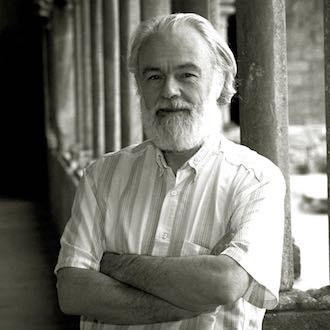
David Harvey
David Harvey (1935) is one of the most prominent geographs today. He earned his PhD in geography from the University of Cambridge and his teaching is divided between the universities of Bristol, Oxford and Johns Hopkins.
His theoretical and methodological contributions have been crucial to the evolution of geography in the late twentieth century. Explanation in Geography, published in 1969, became a classic of geographical literature with neopositivist inspiration and a cornerstone of the ‘new geography’. A similar or even greater impact was caused by his book Social Justice and the City (1973), in this case, however, following the Marxist postulates. Indeed, the territorial reading of Marx’s work led Harvey to perceive geography not only as a science, but as an ideology and, therefore, as a social commitment. Throughout this book and others later, Harvey became a key figure in radical Marxist geography and, more specifically, in the Marxist analysis of urban space, making him well studied and known beyond the strict limits of academic geography and into regional and territorial economy. From an open and renovated Marxist perspective, David Harvey was also interested in socio-spatial dialectic generated by post-Fordist capitalism, introducing in its analysis an extremely interesting cultural dimension. The most significant book in this regard is The Condition of Postmodernity. An Inquiry into the Origins of Cultural Change (1989).
Programme
PROSPECT ON GEOGRAPHY: SPACE, PLACE AND ENVIRONMENT IN CONTEMPORARY THEORY
From June 3rd to 14th, 1996
- Space, place and environment as founding concepts for historical-geographical materialism
- Dialectics and historical-geographical materialism
- The social construction of space and time: a relational perspective
- The domination of nature and its discontents - or the anxieties of modernity
- Valuing nature
- The dialectics of social and environmental change
- The place of place in historical-geographical materialism
- The terrain of social justice
- The geographical imagination: a personal account
- Alternative geographies
Click here to download the programme in pdf.
Invited specialists
By indication of Prof. Harvey, the below mentioned were also invited to participate: John Paul Jones (Kentucky), Cindi Katz (New York), Geraldine Pratt (British Columbia) and Neil Smith (New Jersey). The programme of morning sessions offered was as follows:
- Wednesday 5 June: “Fluidity and Boundaries”, by G. Pratt and N. Smith.
- Thursday 6 June: “Discourse and Social Reality”, by G. Pratt and J. P. Jones
- Friday 7 June: “Production of Nature and politics of ecology”, by N. Smith
- Monday 10 June: “Social and Environmental Change”, by C. Katz
- Tuesday 11 June: “Identity, Space & Method”, by J. P. Jones and C. Katz
- Wednesday 12 June: “Debates on Nationalism”, by J. Nogué and M. Folch Serra; “Tourism and Postmodernity” by J. A. Donaire and “Planning today in Europe”, by J. Vicente
- Thursday 13 June: “Teaching Limits to Capital”, by M. Luz García and M. Sánchez Padrón
- Friday 14 June: “Politics of Geography”, by all the guest lecturers
Others activities
David Harvey gave a conference, open to the general public, at La Mercè Cultural Center, entitled The Sense of the City, with great success by the public.

